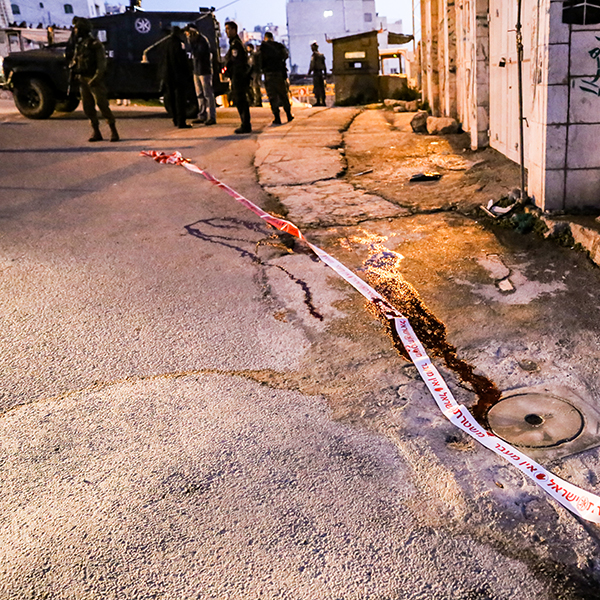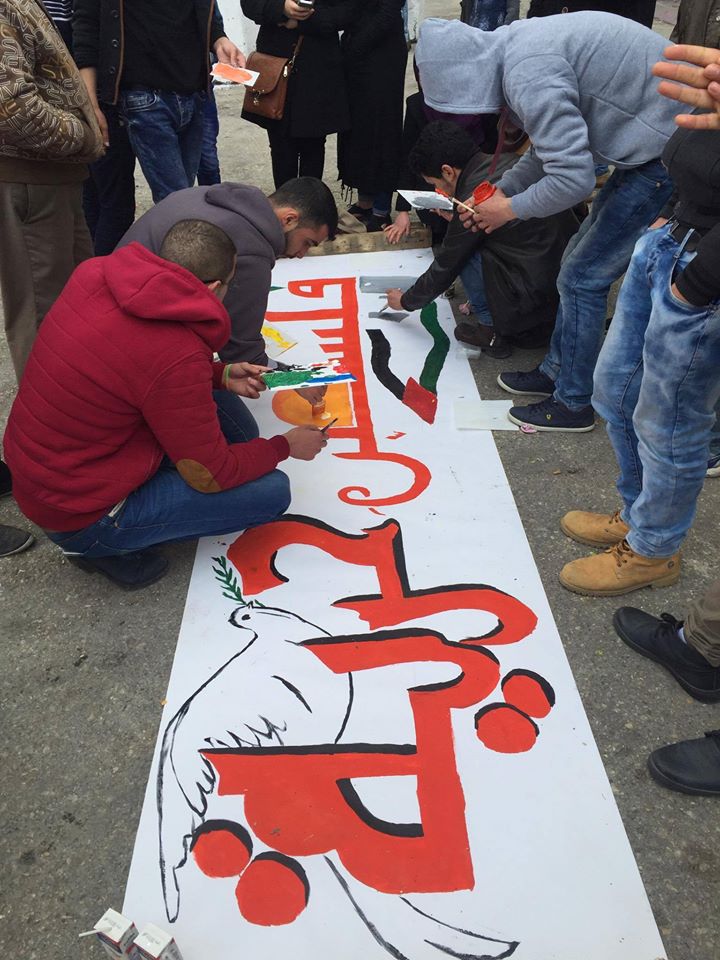-
Soldiers harass farmers preparing fields in Gaza
23rd February 2016 | International Solidarity Movement, Gaza-team | Khuzaa, Gaza Strip, occupied Palestine On Wednesday 17th February at 8 am, around 30 farmers from the village of Khuzaa reached their lands near the border. They intended to clean them from weeds before the beginning of the harvest season. They could work peacefully for about […]
-
Children face fear and threat of violence after young woman shot in Hebron
22nd February 2016 | International Solidarity Movement, al-Khalil team | Hebron, occupied Palestine A day after 21-year old Yasmin al-Zarou was gunned down by Israeli forces when passing the Salaymeh checkpoint, many of the children were forced to walk right past where she had layn on the ground bleeding – where her blood is still […]
-
Peaceful painting-activity met with violence by Israeli army
21st February 2015 | International Solidarity Movement, Al-Khalil team | Hebron, occupied Palestine On Sunday the 21st of February, the people of Hebron along with fellow activists gathered for part of a week long campaign against occupying Israel to show solidarity and oppose the closure of Shuhada Street to the Palestinian people. Shuhada Street has […]
Action Alert An Nabi Saleh Apartheid Wall Arrests BDS Bethlehem Bil'in Cast Lead Demonstration Denial of Entry Ethnic Cleansing Farmers Gaza Global Actions Hebron House Demolition International law Israeli Army Jerusalem Live Ammunition Nablus Ni'lin Prisoner Ramallah Rubber-coated steel bullets Settlement Settlers Settler violence Tear-Gas Canister Video



